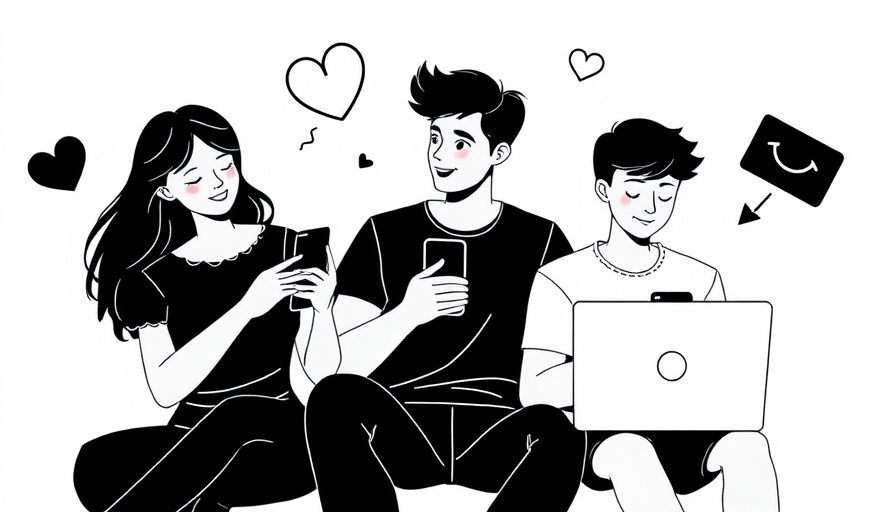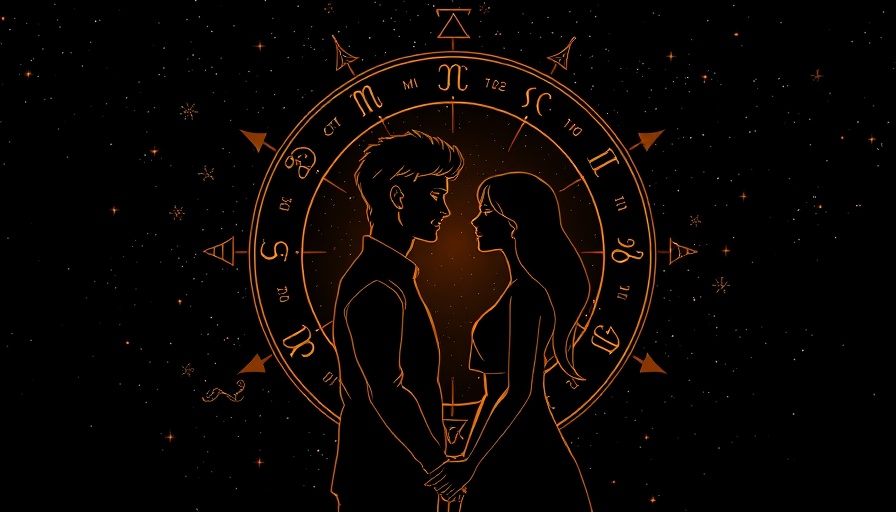
Understanding Gen Z's Unique Approach to Dating
Welcome to the era of Gen Z dating—a landscape defined not just by the apps and online communication but by a genuine desire for connection in a highly digital world. Gen Z, the cohort born from 1997 to 2012, is the first generation to grow up entirely in the age of smartphones. This shift has significantly influenced the way they perceive love and relationships, ultimately leading to a unique dating culture.
Navigating the Modern Landscape of Romance
According to various studies, many young adults today place education and personal growth above traditional romantic relationships. A revealing 2025 survey indicated that a mere 56% of Gen Z adults reported ever having a romantic relationship in their teenage years. This represents a notable drop compared to the 78% of Baby Boomers and 76% of Gen Xers who experienced relationship milestones earlier in life. The focus on self-development and career aspirations dilutes the urgency surrounding dating.
The Digital Detox: Are Dating Apps Losing Their Charm?
Interestingly, while Gen Z represents a significant portion of the online dating world, there is growing disillusionment with it. Recent statistics indicate that 90% of Gen Z daters express a desire for meaningful love despite their frequent use of dating apps. Yet, almost half of this demographic expresses frustration with the swipe-culture of platforms, feeling that they often get ghosted or encounter insincerity. With 47% preferring to meet potential partners in everyday settings rather than through apps, there is an evident yearning for authentic connections.
Rekindling Authenticity in Relationships
One of the most striking trends among young women in this generation is the proactive embrace of a non-religious "celibacy journey." Young women are increasingly vocal about stepping back from hookup culture, seeking authenticity in their relationships instead. As trauma-informed coach Sabrina Flores emphasizes, this movement is a return to femininity accompanied by a quest for deeper emotional connection. This reflects the broader viewpoint of Gen Z that values genuine interactions over superficial encounters.
The Importance of Mental Health and Well-being
Mental health considerations increasingly shape Gen Z's approach to dating. The complexities of navigating modern relationships often lead to anxiety and frustration. Gen Zers are aware of their mental well-being and tend to prioritize it when forming relationships. As noted by University of Illinois scholar Allen Barton, dating has become less significant compared to personal pursuits, highlighting a generational shift driven by a focus on self-care in love and companionship.
Embracing New Norms: Lessons for the Future
As Gen Z continues to redefine what dating looks like, it serves as a reminder for us all—whether in our romantic lives or beyond—that finding joy and fulfillment hinges upon aligning our relationships with our values. Instead of surrendering to the pressures of traditional dating roles, they invite us to create deeper bonds grounded in mutual respect and understanding. The awareness and adjustments that Gen Z brings forth stretch beyond dating, impacting our overall culture.
Final Reflections: What This Means for All of Us
As we observe these evolving dynamics, it remains evident that while technology shapes interactions, the human desire for connection endures. Understanding the motivations and behaviors of Gen Z can enhance how we navigate our own relationships, learning to prioritize authenticity and shared experiences over mere transactional encounters. Let's embrace these developments, and strive towards creating spaces where connections can flourish.
 Add Row
Add Row  Add
Add 




Write A Comment